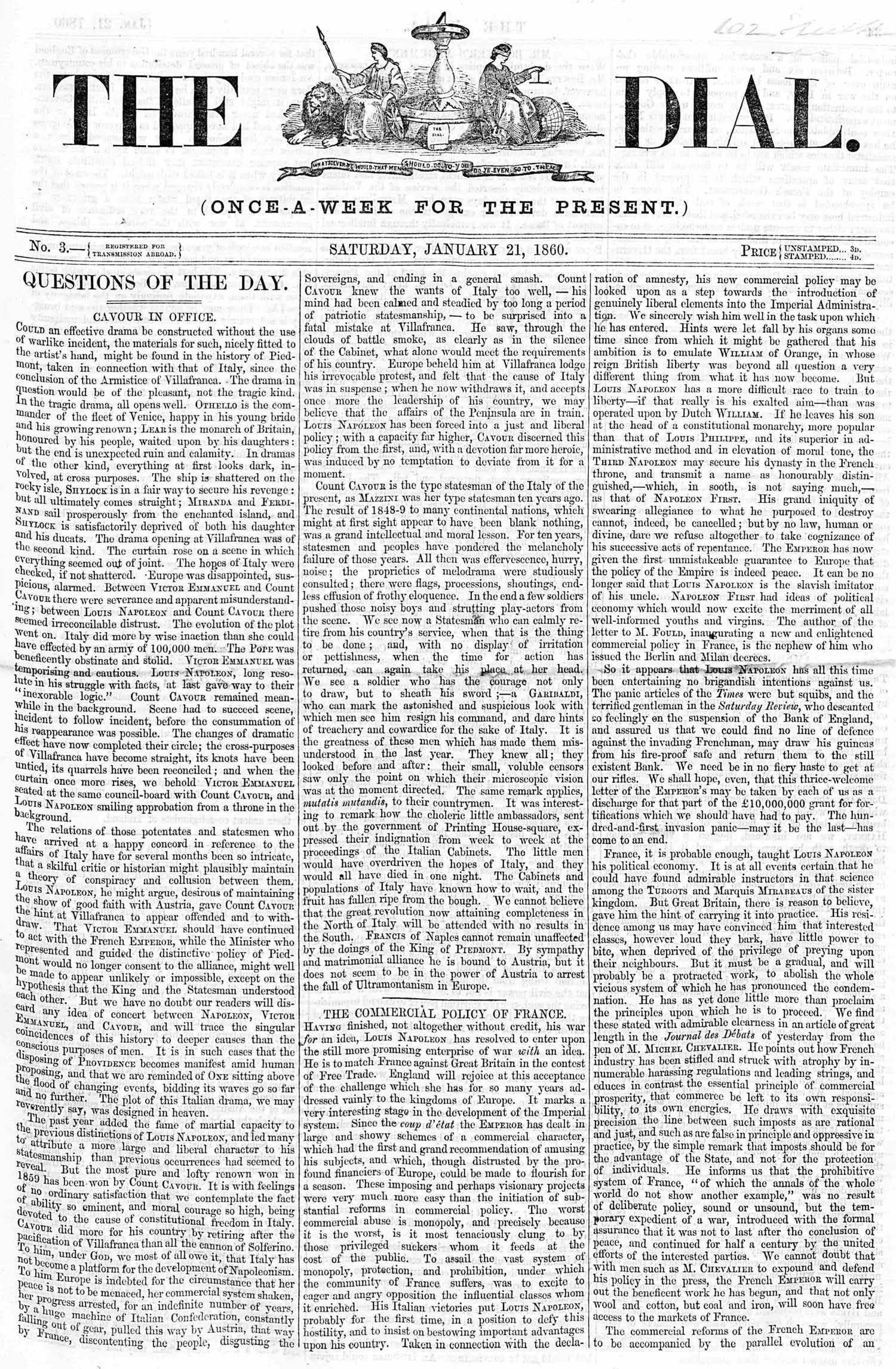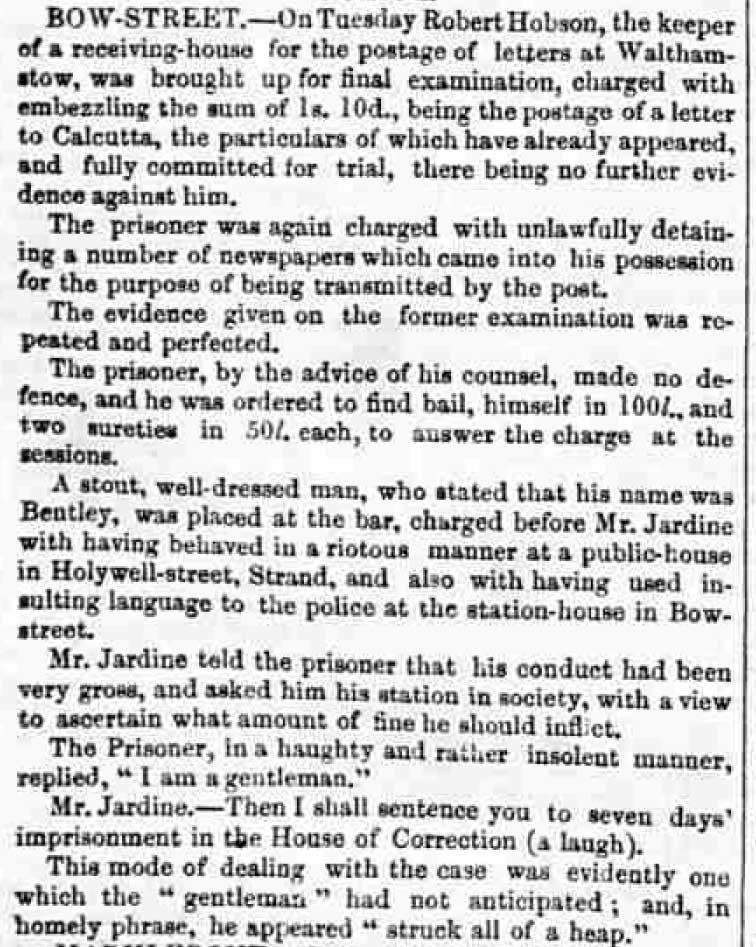Marylebone Mercury – Friday 23 December 1949
Shoplifting — ‘Wicked dishonesty’

Sentencing Bessie Studd, 48, housewife, of Lower Higham Road, Gravesend, Kent, to five months’ imprisonment for stealing a game, worth 3s. 3d., from an Oxford Street store, Mr. Geoffrey Raphael, the Marylebone magistrate, told her she was absolutely a public menace and, if not a professional shoplifter, she was getting very near that.
The magistrate had been told by her husband that she had suffered from nerves since the tragic death of their daughter through bombing during the war, and he suggested that this apparent theft was due to forgetfulness owing to her health.
PREVIOUS OFFENCES
Woman Detective Sergeant Bosworth then revealed that Mrs. Studd was bound over in 1934 for shoplifting and was fined £5 for shoplifting a dress in 1940, both these offences being before the death of her child.
The magistrate said that only showed the danger of being influenced by tragic stories of that kind. The convictions showed quite clearly that Mrs. Studd wanted to plunder these stores as often as she could. She and other women got what they could from the shops and then asked the magistrate to listen to heart-breaking stories of nerves, illness, and absent-mindedness when in truth behind these cases was nothing more than simple, wicked dishonesty.
Contextual Analysis:
In 1949, Britain was still grappling with the aftermath of the Second World War. Rationing was in effect, and there were severe shortages of consumer goods and money. The black market thrived, and many individuals struggled to make ends meet.
Mrs. Studd’s case reflects societal tensions of the time: while her defence leaned on the trauma of war (the loss of a child in bombings), the magistrate dismissed it as an excuse for repeated criminal behaviour. The inclusion of prior offences from the 1930s and 1940s suggests that authorities were sceptical of personal hardship narratives, viewing such justifications as attempts to evade accountability during a period of national austerity.
This incident also highlights the growing concern over shoplifting in post-war Britain, where shortages made theft a significant issue. The magistrate’s harsh language — “simple, wicked dishonesty” — signals an effort to deter others from similar acts, emphasising personal responsibility despite widespread hardship.
The Bigger Research Picture
For researchers and historians, this article offers a valuable glimpse into several aspects of post-war British society, reflecting the socio-economic and cultural conditions of 1949. Here’s an analysis of its significance:
1. Post-War Economic Hardships:
- Rationing and Shortages: Britain’s economy was still recovering from the devastation of World War II, with rationing of goods continuing well into the 1950s. Many households struggled to obtain essential items, and theft of goods—even of low monetary value, as in this case—was not uncommon.
- Class and Crime: Mrs. Studd’s background as a housewife indicates that even middle- or working-class individuals were tempted into criminal activities. Historians can explore how economic deprivation and inflation may have pressured people to resort to shoplifting or other petty crimes.
2. Gender and Crime:
- The ‘Shoplifting Epidemic’: Women were often associated with shoplifting in this era, as they were typically the ones responsible for household provisioning. Researchers can examine how societal expectations and limited financial resources may have driven women to commit these acts.
- Moral Judgments on Women: The article reveals a strong moral condemnation of women shoplifters, with the magistrate characterising the crime as “wicked dishonesty.” This aligns with post-war societal expectations of women as moral guardians of the family.
3. Trauma and Crime Post-War:
- Psychological Impact of War: The defence argument highlights the long-lasting psychological effects of the war, particularly for those who suffered personal losses. Mrs. Studd’s husband cited the trauma of losing their child in a bombing as contributing to her “nervous” condition and forgetfulness.
- Dismissal of Trauma Narratives: The magistrate’s rejection of this defence underscores the limited understanding or acceptance of psychological trauma at the time. Researchers can use this as an example of how mental health issues were dismissed in favour of personal responsibility narratives.
4. Law and Justice:
- Harsh Sentencing: A five-month prison sentence for stealing an item worth 3 shillings and 3 pence reflects a punitive approach to crime. It demonstrates the authorities’ concern over the rising prevalence of petty theft in a society grappling with economic strain.
- Historical Attitudes Towards Rehabilitation: The lack of sympathy for Mrs. Studd’s personal circumstances contrasts with modern views on crime and rehabilitation. Researchers can explore the evolution of judicial attitudes toward mitigating factors like mental health or trauma.
5. Historical Perspectives on the Black Market and Consumerism:
- Black Market Context: The case sits within a broader narrative of post-war black-market activity and the public’s desperate attempts to acquire goods outside rationing systems.
- Early Consumer Society: The emphasis on shoplifting as “plundering stores” reflects concerns over emerging consumerist tendencies and the moral boundaries of acquiring goods in a time of scarcity.
6. Media Framing and Public Opinion:
- Sensational Headlines: The headline “Wicked Dishonesty” and the tone of the article reflect how the press framed shoplifting as both a societal menace and a moral failing. Historians can study how media coverage influenced public perception of petty crimes.
- Scapegoating Women: The inclusion of Mrs. Studd’s prior convictions, even from over a decade earlier, suggests an effort to portray her as incorrigible. This approach raises questions about media biases against certain demographics, particularly women.
Research Applications:
- Crime Studies: This case could be included in studies on petty crime and its socio-economic drivers in post-war Britain.
- Women’s History: The article highlights gendered aspects of crime and punishment, offering insights into the challenges faced by women in this era.
- Mental Health History: The dismissal of trauma as a mitigating factor reflects evolving attitudes towards mental health and its intersection with the legal system.
- Economic History: The case provides a microcosmic view of how individuals navigated shortages, rationing, and austerity measures.
For historians, this article serves as a rich primary source to explore the interplay between economic hardship, gender roles, trauma, and the legal system in Britain’s post-war society.
#PostWarBritain #History




